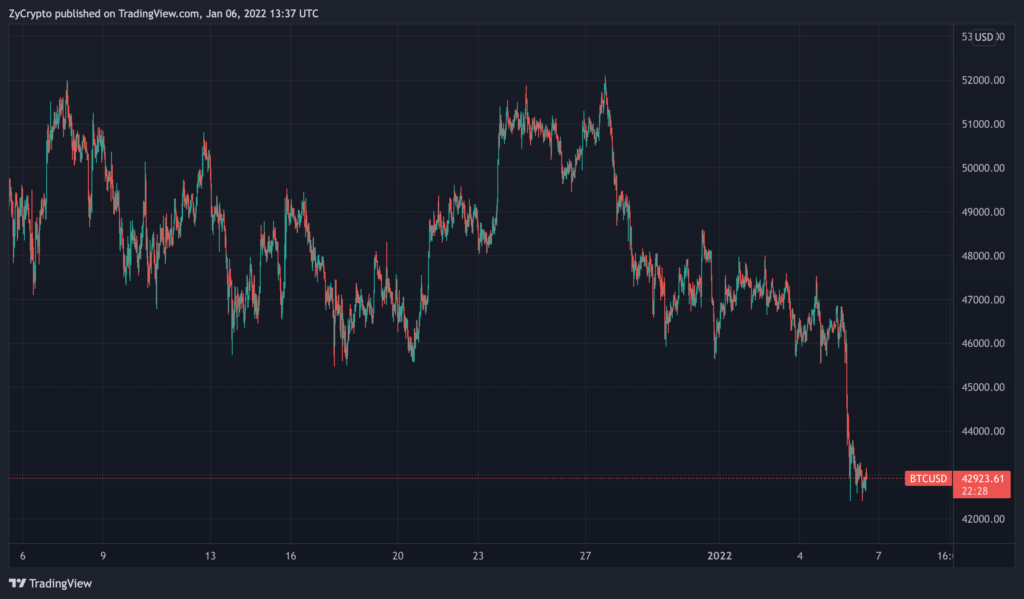At the end of the trading day in the US, Bitcoin had shaved off over 6% of its value to reveal a $43,200 closing price. The value decline spurred a short wave of the selling frenzy by newly admitted dip-buyers and short-term investors looking to break even or salvage what’s left of their gains before further slippage fizzles out all liquidity.
With Bitcoin now at $42,984.74 according to CoinMarketCap, selling activity appears to have persisted for most people around the world, since waking up to the news of looming crypto winter.
A combination of external factors is the drivers of this round of decline and experts believe here are some of them:
US Fed’s Plans To Hike Interest Rates
Following a rising US inflation rate now soaring 120% above its speculated target, the US Fed is looking to combat dollar value loss with increased interest rates. In a released minute of its December meeting, the US Fed disclosed it would ramp up borrowing rates during the first quarter of the year to discourage excessive borrowing.
Part of its plans also includes a projected plug-pull on its long-term bond and securities holdings. The volume of shares valued at $8.8 trillion will see much of it diffused into the markets in the coming weeks to help combat inflation.
The implication for the stock and crypto market will mean a cutback on investment because of the high cost of accessing credit.
Protests in Kazakhstan Halts Bitcoin Mining
A rabid protest in the city of Nur-Sultan has seen hundreds of Kazakhs take to the streets to decry the growing energy shortage. Their concerns Center on the growing number of crypto mining facilities in the nation, its rising energy consumption, and the adverse effect on the people.
The protesters have since forced telecommunications provider, Kazakhtelecoms, to cut back on internet supply, targeting miners in the region.
According to BTC.com, there has been a significant decline in hash rate across Binance pool, Antpool, and F2Pool — the three most popular mining pools in Kazakhstan — since the forced power outage.
As a neighboring nation to China, Kazakhstan became the world’s second-best destination for miners — heeling the US — on the back of the hardline crypto ban by the Chinese government last year.
In a similar vein, the government of Kosovo has issued a ban on all crypto mining activities. The Balkan nation has acted on the concerns of many of its citizens lamenting power shortages because of the influx of miners. Both Kazakhstan and Kosovo have cheaper costs of electricity.
Going forward
The trend is reminiscent of the blow bitcoin had suffered when rising regulatory scrutiny from the US coincided with China’s decision to back out cryptocurrencies, and echoes of the energy-consuming nature of mining activities gained mainstream audiences. The result was a value decline so tough, yet not entirely hopeless for Bitcoin
Source: Read Full Article

